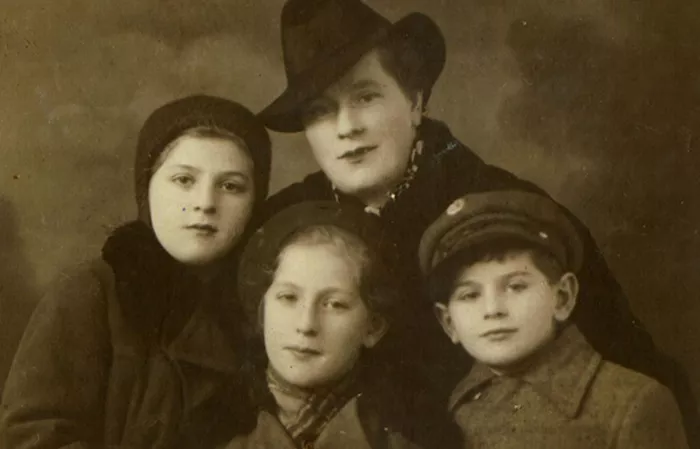Welcome to Poem of the Day – A Jewish Family in a Small Valley Opposite St. Goar, Upon the Rhine by William Wordsworth
William Wordsworth, one of the greatest English Romantic poets, often wrote poems inspired by nature, people, and their emotions. One of his lesser-known but deeply meaningful poems is “A Jewish Family in a Small Valley Opposite St. Goar, Upon the Rhine.” This poem offers a vivid glimpse into the life of a Jewish family living peacefully by the Rhine River in Germany. Let’s explore the poem and its meaning step by step.
A Jewish Family in a Small Valley Opposite St. Goar, Upon the Rhine Explanation
Context and Setting
The poem is set in a small valley opposite St. Goar, a town on the banks of the Rhine River. This area is known for its beautiful landscapes, with rolling hills and calm waters. Wordsworth describes the Jewish family living there, highlighting their quiet, humble life away from the noisy world.
This setting is important because Wordsworth, as a Romantic poet, often found inspiration in peaceful natural surroundings and ordinary lives. By choosing a Jewish family as his subject, he also shows respect and empathy toward a community that was often misunderstood or marginalized in Europe at that time.
Main Themes
1. Harmony with Nature
Wordsworth emphasizes how the Jewish family lives in harmony with their natural environment. The quiet valley and the flowing Rhine symbolize peace and stability. This peaceful life contrasts with the turmoil and prejudice that Jews faced in many parts of Europe. The family’s connection to the land shows dignity and resilience.
2. Human Dignity and Simplicity
The poem gently celebrates the simplicity and strength of the family. Wordsworth respects their way of life, which is modest but full of love and care. This reflects the Romantic ideal of finding beauty in ordinary people and everyday moments.
3. Cultural Identity and Belonging
By focusing on a Jewish family, Wordsworth acknowledges the cultural identity of the Jewish people. He shows them as part of the natural world and human society, deserving understanding and compassion. This was an unusual and respectful portrayal at a time when anti-Semitism was common.
Structure and Style
The poem is written in a calm, descriptive tone. Wordsworth uses simple language and clear images to create a peaceful mood. His choice of words highlights the gentle flow of the Rhine and the quiet life of the family.
The structure of the poem allows readers to slowly picture the valley, the river, and the family. This gradual unveiling invites us to reflect on the themes of peace, identity, and coexistence.
Significance of the Poem
This poem is significant because it shows Wordsworth’s broad sympathy and his ability to find beauty in diversity. Rather than focusing on grand historical events or heroic figures, he chooses a humble family in a small valley. Through this, he suggests that every life has value and that harmony between people and nature is possible.
The poem also encourages readers to look beyond prejudice and appreciate the common humanity that connects us all.
Conclusion
William Wordsworth’s A Jewish Family in a Small Valley Opposite St. Goar, Upon the Rhine is a gentle, thoughtful poem that celebrates nature, human dignity, and cultural respect. It invites readers to see beauty in simple lives and peaceful places. By focusing on a Jewish family, Wordsworth shows empathy and challenges common biases of his time.
This poem reminds us that poetry can be a bridge between different cultures and a celebration of shared humanity. Through clear and simple language, Wordsworth’s message remains powerful and relevant today.

